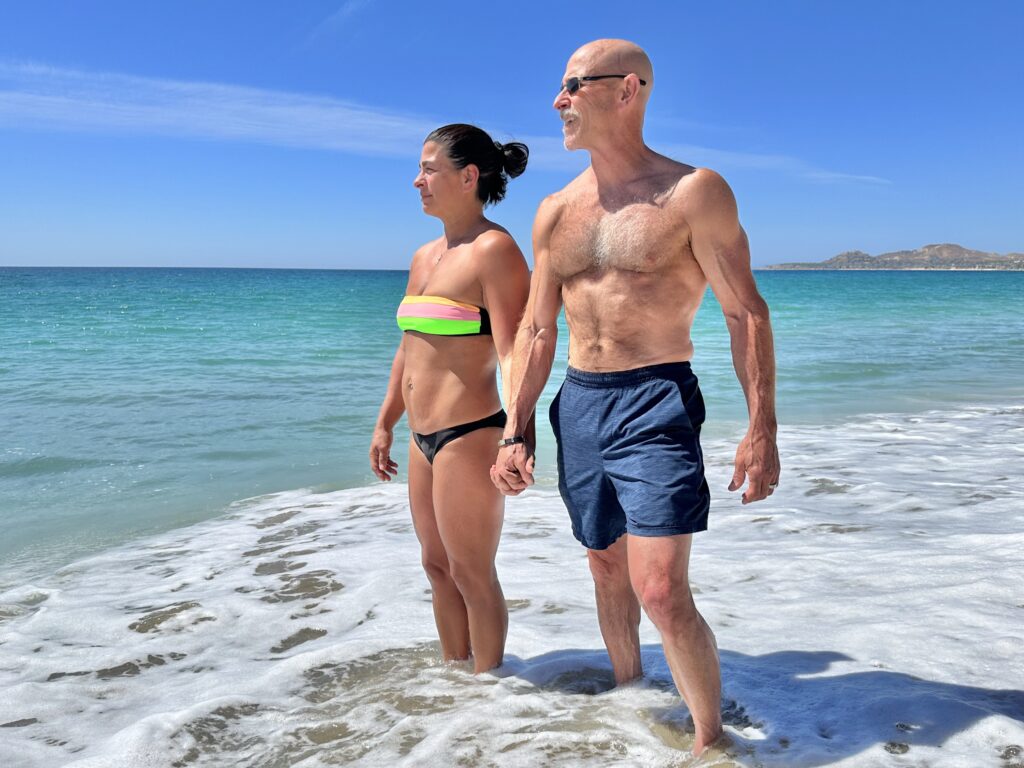If you’re like most people, your day moves quickly. It can be challenging to squeeze in all of your most pressing responsibilities during jam-packed weekdays, let alone make time for your health. Hours tend to move by as you stay firmly planted in your desk chair. By the time you do glance at the clock, you might figure that it’s best to simply stay put and finish the task at hand.
You’re not alone in this approach – in fact, it’s the same habit most individuals fall into. For most of us, productivity takes precedence over our own health and wellbeing. Thus, by the time you clock out for the day, you find yourself with an aching back, stiff hips, and throbbing shoulders. Your nutrition may have consisted of whatever you had time to reheat and a sip of water here or there. Unsurprisingly, your energy is zapped.
For those of us who are dedicated to our jobs, family responsibilities, or other tasks that take up most of our day, it can be tempting to put wellness on the backburner. Yet, our health deserves just as much attention as these other priorities. You might even say that it deserves more attention because, without your health, there’s no way to be productive.
6 Healthy Habits to Practice Daily
You can benefit from scheduling healthy habits into your daily routine – just as you would any other task. In doing so, you may be able to prevent chronic issues like aches and pains, depleted energy, and even disease risk. Add the following tricks to your day and you’ll feel benefits both immediately and over the long term.
1. Have Protein 3 Times a Day
Protein is found in virtually every aspect of your body, from muscle and bone tissue to your skin and hair. It’s the foundation of the enzymes which power critical chemical reactions in the body, along with the hemoglobin that transports oxygen. This nutrient consists of at least 20 different amino acids, many of which must come from food.
The National Academy of Medicine recommends roughly 7 grams of protein for every 20 pounds of body weight. Unfortunately, the standard American diet tends to prioritize carbohydrates and nutritionally poor foods over healthy protein sources.
Thus, to begin optimizing your health, one simple healthy habit to adopt is to eat protein three times a day. This could include eggs at breakfast, a protein shake for a snack, lean chicken on a salad during lunch, or a serving of fish or another lean protein at dinner.
2. Eat AT LEAST 2 Servings of Vegetables Each Day
While macronutrients like protein are important for optimizing health, your body also needs micronutrients to perform its best. Vegetables are an excellent source of vitamins and minerals, and many are also low in calories. For this reason, you should be eating at least two servings each day.
Two servings may sound like a lot, but there are many simple ways to incorporate more vegetables into each of your meals. For example:
- Add peppers, spinach, or onions to an omelet for a veggie-packed breakfast.
- Have a crisp salad with a variety of greens such as kale, spinach, or spring mix for lunch. To get even more vegetables in one meal, add carrot shreds, cabbage, cucumber, or tomatoes.
- Grill, bake, or roast vegetables with olive oil, lemon, and garlic for a healthy side to your protein at dinner.
3. Have 1-2 Fruits a Day
Like vegetables, fruits are great sources of vitamins. They’re also high in fiber, which aids in blood sugar regulation and helps to control hunger. Fiber has also been shown to reduce the risk of serious diseases, such as diabetes, heart disease, and diverticular disease.
Having just one to two fruit servings each day is simple: just add an apple, orange, or pear to your breakfast, or make it a mid-morning snack.
4. Drink plenty of water
Water is critical to survival and makes up roughly 60% of your body weight. It’s responsible for waste removal, temperature regulation, tissue protection, and joint lubrication. Even slight dehydration can zap your energy.
It’s therefore critical that you get enough water each day. A great rule of thumb is to drink ½ your body weight in ounces of water each day. If you find yourself coming up short, set a timer on your phone to get up from your desk and head to the kitchen to fill up your glass or bottle. You can also look for an app that will send you timely reminders to keep drinking water.
5. Move every few hours
Speaking of timers, you might also set up a reminder to move often throughout the day. Sedentary lifestyles have been associated with:
- Obesity
- Heart disease
- High cholesterol
- Type 2 diabetes
- High blood pressure
- Stroke
- Metabolic syndrome
- Certain types of cancer
Luckily, you can offset the dangers of sitting with some simple lifestyle changes. Start moving at work by getting out of your chair and stretching at least once every hour. Try standing while you’re talking on the phone, and walk to a coworker’s office instead of emailing them.
Take the stairs whenever possible, and use your lunch hour to take walks outside or around the building. You can even incorporate short bursts of strength or cardio exercises into your days, such as jumping jacks or planks.
6. Breathe deeply for 10 minutes
When possible, take 10 minutes to yourself to practice deep diaphragmatic breathing. Try to practice this either outside or in a quiet space. Take eight to ten deep breaths in through the nose, filling the stomach, then release slowly through the mouth. Doing so will reduce your blood pressure and bring your heart rate down, helping you to combat any stress you may be experiencing.
Adding Healthy Habits to Your Daily Routine – In Conclusion
As you can see, you don’t need to revamp your entire daily routine to become healthier. Instead, small healthy habits, that interpret into healthy living, can be worked into even the busiest of schedules to deliver major wellness benefits.
Of course, your needs and lifestyle may look different from the next person’s. For this reason, your Cenegenics clinical team can work with you to design a program that optimizes your wellness without compromising your routine. To find out more about how our specialists can help you boost both your immediate and long-term health, contact your nearest Cenegenics location today.
Every Journey Starts with a Single Step – Next Steps
Our world-class physicians create a personalized plan to help you feel 10+ years younger. You’ll be more energetic, lose weight, sleep better, have more libido, and think more clearly. Click below to schedule a free consultation with one of our physicians. It’s quick + easy.







